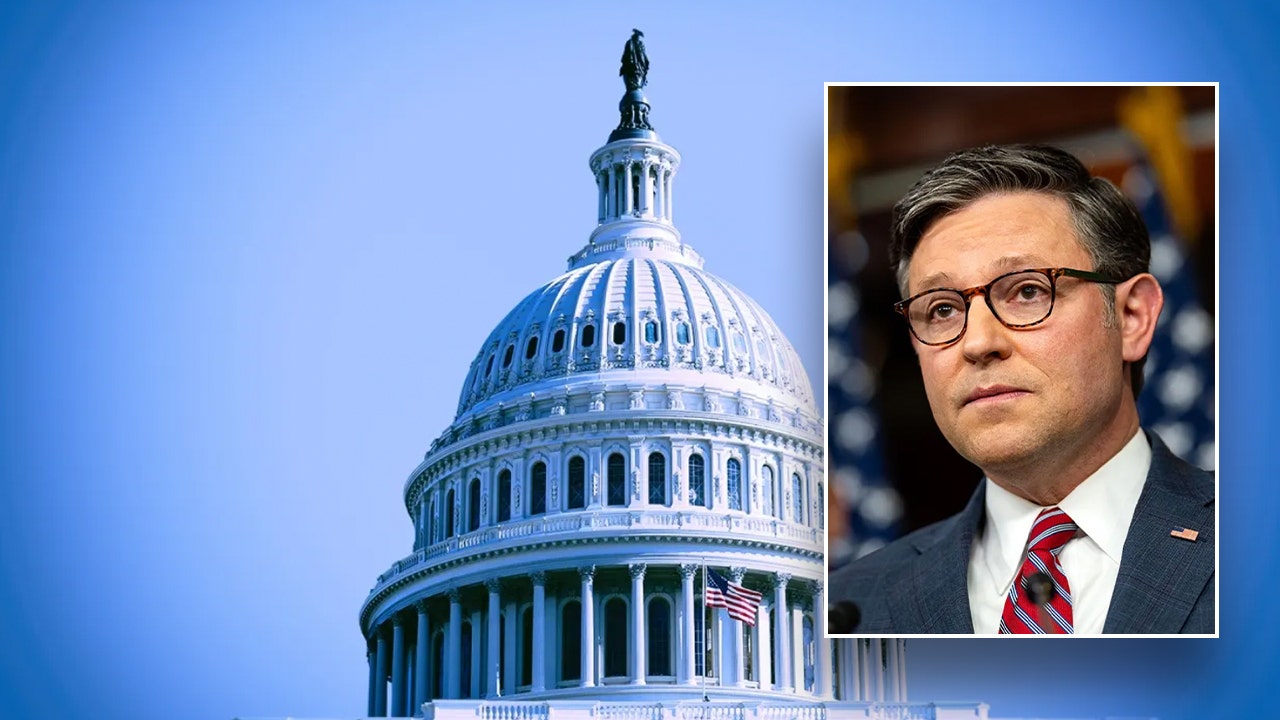North Carolina
North Carolina governor vetoes fairness in women’s sports, blaming ‘culture wars’

On Wednesday, North Carolina Gov. Roy Cooper vetoed the Fairness in Women’s Sports Act, which would prohibit transgender athletes from joining women’s sports teams. It was a profoundly unwise veto.
Cooper defended his decision in a statement: “We don’t need politicians inflaming their political culture wars by making broad, uninformed decisions about an extremely small number of vulnerable children that are already handled by a robust system that relies on parents, schools and sports organizations. Republican governors in other states have vetoed similar bills because they hurt their states’ reputation and economy and because they are neither fair nor needed.”
LAW ENFORCEMENT AND CONGRESS SHOULD SECURE BIDEN’S SECRET EMAILS
Uninformed? There’s plenty of evidence, including in North Carolina, that allowing transgender people in women’s spaces and sports is dangerous. It is true that by playing a sport you risk getting hurt. But unfair injuries and trauma can be avoided with rational legislation.
In claiming that the Fairness in Women’s Sports Act is a mere culture-war bill, Cooper is dismissing his own state’s reality.
Just last fall, a North Carolina teenager suffered serious head and neck injuries from a spike by a transgender athlete at her high school volleyball game. According to local news outlet WLOS, she is still struggling with partial paralysis on the right side of her body, loss of vision, and constant headaches, besides mental symptoms such as depression and anxiety.
Young athletes in other states are also facing unfairness because of transgender participation in women’s sports. Tom Joyce of the Washington Examiner previously reported three examples of transgender athletic advantage this school year, in California, Massachusetts, and New Hampshire. Not to mention other incidents at higher levels, with athletes such as Lia Thomas flashing his teammates and dominating female competitors in swim races.
Leftist politicians and LGBT activists used the same argument about fringe “culture wars” in their protest against biological bathroom bills for schools, which would prohibit transgender people from going into bathrooms that do not align with their biological sex. They denied the dangers that Republican politicians accurately predicted.
The Human Rights Campaign, for example, posted a page under their “Resources” section called “Get the Facts about Transgender & Non-Binary Athletes.” Referring to LGBT-related legislation, they wrote, “Transgender and non-binary people have been the target of many of these attacks, especially since the 2015 state legislative sessions. Then, so-called bathroom bills were a major focus and politicians lied about threats to women and girls’ safety that never materialized.”
This could not be farther from the truth. Young girls in Virginia, Oklahoma, California, Wisconsin, and New Mexico have been assaulted, raped, and traumatized by their transgender peers. Some of them have been ignored by their school districts. All because Democratic politicians refused to protect their privacy out of fear of making transgender students feel excluded.
CLICK HERE TO READ MORE FROM THE WASHINGTON EXAMINER
Cooper cannot diminish the current situation to a “culture war.” Children have the right to play sports without having to worry about a ridiculous biological advantage. They should be able to use locker rooms and bathrooms without fear. To say so isn’t warlike; it’s just common sense and common decency. Cooper is now on the wrong side of both.
Briana Oser is a summer 2023 Washington Examiner fellow.

North Carolina
New damage delays I-40 reopening in North Carolina closed by Helene

WAYNESVILLE, N.C. (AP) — The reopening of a section of Interstate 40 in western North Carolina that collapsed during Hurricane Helene’s historic flooding has been delayed after more asphalt from eastbound lanes fell this week, the state Department of Transportation said on Friday.
The primary road connection between North Carolina and eastern Tennessee was severed in late September as flooding in the Pigeon River gorge washed away over 1 mile (1.6 kilometers) of I-40’s eastbound lanes.
Transportation crews and contractors had focused initially on reopening the westbound lanes in Haywood County to two-way traffic during the first week of January. Now the new damage will keep it closed until engineers determine the area is safe enough for drivers in such a narrow pattern in the gorge, according to a state DOT news release.
Trusted news and daily delights, right in your inbox
See for yourself — The Yodel is the go-to source for daily news, entertainment and feel-good stories.
“It is an unfortunate situation,” division engineer Wanda Payne said. “It’s a new hurdle that we have to overcome in order to provide a safe facility for the travelling public.”
The department attributes the new slide to wet weather and freeze-thaw conditions. Contractors have been working to stabilize one lane in each direction from Harmon Den to the Tennessee line, or about 7 miles (11.3 kilometers).
“We would like to open the corridor as soon as it is safe to do so,” Payne said. “We know it is a critical route for folks who live here, visit here and travel through here.”
Hurricane Helene and its resulting destruction damaged roads and bridges in more than 6,900 sites, according to a state government damage and needs assessment report. The department, its contractors and partners have reopened more than 1,200 roads that were closed.
North Carolina
Another road collapse delays reopening of I-40 after Helene

HAYWOOD COUNTY, N.C. (FOX Carolina) – The North Carolina Department of Transportation said new damage will delay the reopening of Interstate 40. The interstate was heavily damaged during Hurricane Helene.
A large chunk of asphalt fell away in an eastbound lane of I-40 near the Pigeon River Gorge. Officials said wet and freezing weather contributed to the slide.
Crews initially hoped to reopen the interstate during the first week of January, but it will remain closed until it is deemed safe.
“It is an unfortunate situation,” NCDOT Division 14 Engineer Wanda Payne said. “It’s a new hurdle that we have to overcome in order to provide a safe facility for the traveling public.”
Engineers are working to stabilize the damage with additional soil nails.
Drivers are reminded about the designated detours in place to drive.
Copyright 2024 WHNS. All rights reserved.
North Carolina
Previewing Arkansas vs. North Carolina A&T

The Arkansas Razorbacks (9-2, 0-0 SEC) have just two non-conference matchups left before they start SEC play, and they can’t look past the North Carolina A&T Aggies (3-9, 0-1 CAA), who will visit Bud Walton Arena on Saturday.
Arkansas’ penultimate non-conference matchup looks like an easy game on paper, but another wire-to-wire win would help the Razorbacks in the metrics and analytics. Right now, the Hogs sit at No. 40 in KenPom and No. 48 in the NET rankings.
The Aggies are led by second-year head coach Monte Ross. He was an assistant at Temple for four years and spent 10 years as the head coach at Delaware prior to that. Last season, NC A&T finished 7-25 and 5-13 in the Coastal Athletic Association.
This season, it hasn’t gone much better. The Aggies are at 3-9 with wins over Cheyney University of Pennsylvania, The Citadel and Morgan State University. They’ve lost seven games in a row, with the most recent game a 73-68 loss to Coastal Carolina.
There are several interesting ties between the Aggies and the Razorbacks in Saturday’s matchup. NC A&T junior guard Jordan Martin is the son of Arkansas assistant coach Chuck Martin. North Carolina A&T’s leading scorer, Landon Glasper, is a Fayetteville native and was at Fayetteville High School while Arkansas staff member Ronnie Brewer was on staff.
The Aggies’ second-leading scorer, Ryan Forrest, is also an Arkansas native and hails from Marion. He and Glasper played AAU ball for Brewer while in high school.
Here’s HawgBeat’s preview of what you need to know about the North Carolina A&T Aggies ahead of Saturday’s contest, including analytics, players to watch for and more…
-

 Politics1 week ago
Politics1 week agoCanadian premier threatens to cut off energy imports to US if Trump imposes tariff on country
-
/cdn.vox-cdn.com/uploads/chorus_asset/file/25782636/247422_ChatGPT_anniversary_CVirginia.jpg)
/cdn.vox-cdn.com/uploads/chorus_asset/file/25782636/247422_ChatGPT_anniversary_CVirginia.jpg) Technology1 week ago
Technology1 week agoInside the launch — and future — of ChatGPT
-
/cdn.vox-cdn.com/uploads/chorus_asset/file/25789444/1258459915.jpg)
/cdn.vox-cdn.com/uploads/chorus_asset/file/25789444/1258459915.jpg) Technology7 days ago
Technology7 days agoOpenAI cofounder Ilya Sutskever says the way AI is built is about to change
-

 Politics1 week ago
Politics1 week agoU.S. Supreme Court will decide if oil industry may sue to block California's zero-emissions goal
-
/cdn.vox-cdn.com/uploads/chorus_asset/file/25546252/STK169_Mark_Zuckerburg_CVIRGINIA_D.jpg)
/cdn.vox-cdn.com/uploads/chorus_asset/file/25546252/STK169_Mark_Zuckerburg_CVIRGINIA_D.jpg) Technology1 week ago
Technology1 week agoMeta asks the US government to block OpenAI’s switch to a for-profit
-

 Politics1 week ago
Politics1 week agoConservative group debuts major ad buy in key senators' states as 'soft appeal' for Hegseth, Gabbard, Patel
-

 Business5 days ago
Business5 days agoFreddie Freeman's World Series walk-off grand slam baseball sells at auction for $1.56 million
-
/cdn.vox-cdn.com/uploads/chorus_asset/file/23951353/STK043_VRG_Illo_N_Barclay_3_Meta.jpg)
/cdn.vox-cdn.com/uploads/chorus_asset/file/23951353/STK043_VRG_Illo_N_Barclay_3_Meta.jpg) Technology5 days ago
Technology5 days agoMeta’s Instagram boss: who posted something matters more in the AI age
















